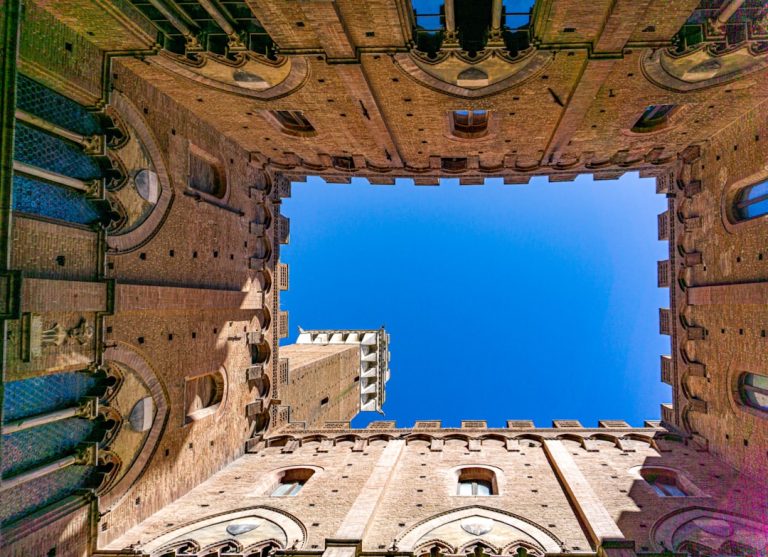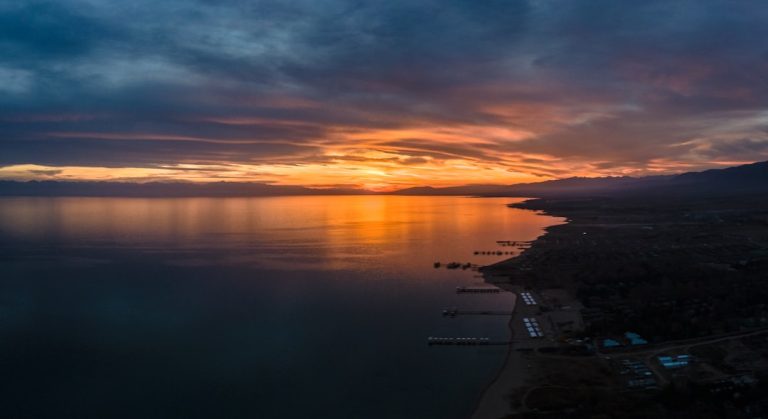English Learners worldwide now have the educational opportunity to learn about some of the major cities of the United States of America via helpful articles and audio recordings. We recommend students read the articles along with the audio to help improve both reading and listening comprehension.
Here are the 50 most populous cities of the United States of America – click on each city to access the educational article and audio recording:
- New York, New York — Article: Exploring New York: Fascinating Facts, Must-See Places, and Attractions
- Los Angeles, California — Article: Exploring Los Angeles: Facts, Places, and Sights
- Chicago, Illinois — Article: Exploring Chicago: Facts, Places, & Sights
- Houston, Texas — Article: Exploring Houston: Facts, Places, & Sights
- Phoenix, Arizona — Article: Exploring Phoenix: Facts, Places, and Sights
- Philadelphia, Pennsylvania — Article: Exploring Philadelphia: Facts, Places, and Sights
- San Antonio, Texas — Article: San Antonio, Texas: Discovering the City’s Charms
- San Diego, California — Article: Exploring San Diego: Facts, Places, and Sights
- Dallas, Texas — Article: Discovering Dallas: Fascinating Facts, Must-See Places, and Attractions
- San Jose, California — Article: Exploring San Jose: Facts, Places, and Sights
- Austin, Texas — Article: Exploring Austin, Texas: Facts, Places, & Sights
- Jacksonville, Florida — Article: Discovering Jacksonville: Facts, Places, & Sights
- Fort Worth, Texas — Article: Exploring Fort Worth: Facts, Places, and Sights
- Columbus, Ohio — Article: Exploring Columbus, Ohio: Fascinating Facts, Must-See Places, and Attractions
- Indianapolis, Indiana — Article: Discovering Indianapolis: Fascinating Facts, Must-See Places, and Attractions
- Charlotte, North Carolina — Article: Discovering the Best of Charlotte: Facts, Places, and Sights
- San Francisco, California — Article: Exploring San Francisco: Facts, Places, and Sights
- Seattle, Washington — Article: Exploring Seattle: Facts, Attractions, and Sights
- Denver, Colorado — Article: Discover Denver: Fascinating Facts, Must-See Places, and Hidden Gems
- Oklahoma City, Oklahoma — Article: Exploring Oklahoma City: Facts, Places, and Sights
- Nashville, Tennessee — Article: Discover Nashville: Fascinating Facts, Must-See Places, and Attractions
- El Paso, Texas — Article: Exploring El Paso, Texas: Facts, Places, and Sights
- Washington, District of Columbia — Article: Discovering Washington, DC: Fascinating Facts, Must-See Places, and Hidden Gems
- Boston, Massachusetts — Article: Exploring Boston: Facts, Places, and Sights
- Las Vegas, Nevada — Article: Discovering Las Vegas: Fascinating Facts, Must-See Spots, and Attractions
- Portland, Oregon — Article: Exploring Portland: Facts, Places, and Sights
- Detroit, Michigan — Article: Discover Detroit: Fascinating Facts, Must-See Places, and Attractions
- Louisville, Kentucky — Article: Discovering Louisville: Facts, Places, & Sights
- Memphis, Tennessee — Article: Discovering Memphis: Fascinating Facts, Must-See Spots, and Attractions
- Baltimore, Maryland — Article: Exploring Baltimore: Fascinating Facts, Must-See Places, and Attractions
- Milwaukee, Wisconsin — Article: Discovering Milwaukee, Wisconsin: Facts, Places, and Sights
- Albuquerque, New Mexico — Article: Exploring Albuquerque, NM: Facts, Attractions, and Sights
- Fresno, California — Article: Discover Fresno: Must-See Sights & Fun Facts
- Tucson, Arizona — Article: Discover Tucson: A Guide to Interesting Facts, Places to Visit, and Things to See
- Sacramento, California — Article: Discover Sacramento: Facts, Places, & Sights
- Mesa, Arizona — Article: Discovering Mesa, Arizona: Fascinating Facts, Must-See Spots, and Attractions
- Kansas City, Missouri — Article: Exploring Kansas City, Missouri: Facts, Places, and Sights
- Atlanta, Georgia — Article: Explore Atlanta, Georgia: Fascinating Facts, Must-See Places, and Attractions
- Omaha, Nebraska — Article: Discovering Omaha: Fun Facts, Must-See Spots, and Attractions
- Colorado Springs, Colorado — Article: Exploring Colorado Springs: Facts, Places, & Sights
- Raleigh, North Carolina — Article: Discovering Raleigh: Fascinating Facts, Must-See Places, and Attractions
- Virginia Beach, Virginia — Article: Exploring Virginia Beach: Facts, Places, and Sights
- Long Beach, California — Article: Exploring Long Beach, CA: Facts, Places, & Sights
- Miami, Florida — Article: Exploring Miami, Florida: Facts, Places, and Sights
- Oakland, California — Article: Discover Oakland: Fascinating Facts, Must-See Spots
- Minneapolis, Minnesota — Article: Exploring Minneapolis: Facts, Places, and Sights
- Tulsa, Oklahoma — Article: Discovering Tulsa: Fascinating Facts, Must-See Places, and Attractions
- Bakersfield, California — Article: Exploring Bakersfield, CA: Facts, Places, and Sights
- Wichita, Kansas — Article: Discovering Wichita, Kansas: Fascinating Facts, Must-See Places, and Attractions
- Arlington, Texas — Article: Arlington, Texas: Discovering the City’s Charm
Understanding America’s Urban Landscape: The Significance of Major Cities
Introduction
The United States is home to some of the world’s most influential and diverse cities. From New York’s towering skyscrapers to Los Angeles’ sprawling suburbs, American cities play a crucial role in shaping the nation’s culture, economy, and global influence. This chapter explores why learning about major American cities is not only fascinating but also essential for understanding the complex tapestry of American society.
Historical Significance
Major American cities have been at the forefront of the nation’s development since its inception. Many of these urban centers have rich histories that reflect the broader narrative of the United States:
- Boston: Often referred to as the “Cradle of Liberty,” Boston played a pivotal role in the American Revolution. The city’s historical sites, such as the Freedom Trail, offer tangible connections to the birth of the nation.
- Philadelphia: As the first capital of the United States, Philadelphia was where the Declaration of Independence and the Constitution were drafted and signed. The city’s history provides insights into the founding principles of American democracy.
- New York City: From its humble beginnings as a Dutch trading post to its current status as a global financial hub, New York City’s evolution mirrors the growth and transformation of the United States itself.
Understanding the historical development of these cities helps students grasp the broader context of American history and how urban centers have shaped the nation’s trajectory.
Economic Powerhouses
Major American cities are often economic powerhouses that drive regional and national growth. Studying these urban economies provides valuable insights into:
- Industry Clusters: Cities like San Francisco and Seattle have become synonymous with the tech industry, while New York and Chicago are known for their financial sectors. Understanding these industry concentrations helps explain regional economic patterns and job markets.
- Innovation Hubs: Many major cities are hotbeds of innovation, hosting renowned universities, research institutions, and start-up incubators. Examining these ecosystems can inspire students and provide insights into future career opportunities.
- Global Connections: Cities like Miami and Los Angeles serve as gateways to international markets, highlighting the interconnectedness of the global economy.
By studying the economic roles of major cities, students can better understand the complex dynamics of the American and global economies.
Cultural Melting Pots
America’s major cities are often described as cultural melting pots, reflecting the nation’s diverse heritage and ongoing immigration patterns. Learning about these urban centers offers students:
- Exposure to Diversity: Cities like New York, Los Angeles, and Chicago are home to vibrant ethnic enclaves that showcase the multicultural fabric of American society.
- Cultural Innovations: Many American cultural exports, from jazz in New Orleans to hip-hop in New York, originated in urban settings. Understanding these cultural phenomena provides insights into American soft power and global influence.
- Social Movements: Major cities have often been at the forefront of social change, from the civil rights movement to LGBTQ+ rights. Studying urban social dynamics helps students understand the evolution of American society.
Urban Planning and Infrastructure
Examining major American cities provides valuable lessons in urban planning, architecture, and infrastructure development:
- Transportation Systems: Cities like New York and Chicago boast extensive public transportation networks, while Los Angeles exemplifies car-centric urban sprawl. Comparing these systems offers insights into sustainable urban development and mobility challenges.
- Architectural Innovations: Iconic skylines, such as those of Chicago and New York, showcase architectural innovations that have influenced global urban design.
- Environmental Challenges: Major cities often grapple with environmental issues like air pollution, water management, and urban heat islands. Studying these challenges and proposed solutions can inspire future urban planners and environmentalists.
Political and Administrative Centers
Many major American cities serve as state capitals or important administrative centers. Learning about these urban hubs helps students understand:
- Governance Structures: Examining city governments provides insights into local politics, public policy implementation, and civic engagement.
- Federal-State-Local Relations: Cities often interact with state and federal governments, offering case studies in the complexities of American federalism.
- Urban Policy Challenges: Issues like affordable housing, public education, and law enforcement are often at the forefront of urban politics, providing real-world examples of policy debates.
Tourism and Global Recognition
Major American cities are often popular tourist destinations, contributing significantly to the nation’s economy and global image:
- Iconic Landmarks: From the Statue of Liberty to the Golden Gate Bridge, urban landmarks often serve as symbols of American culture and aspirations.
- Cultural Institutions: World-class museums, theaters, and sports venues in major cities showcase American cultural achievements and provide educational opportunities.
- Global Events: Cities like New York and Los Angeles frequently host international events, from UN gatherings to the Olympics, highlighting their global significance.
Conclusion
Learning about major American cities is not just an exercise in geography; it’s a gateway to understanding the multifaceted nature of American society. These urban centers serve as microcosms of the nation’s history, economy, culture, and challenges. By studying these cities, students gain valuable insights into:
- The historical development of the United States
- The dynamics of the American and global economies
- The diversity and cultural richness of American society
- Urban planning and environmental challenges
- The complexities of American governance and politics
- America’s role on the global stage
As the world becomes increasingly urbanized, the lessons learned from studying major American cities can be applied to understanding global urban trends and challenges. Whether students aspire to be urban planners, policymakers, business leaders, or informed citizens, a deep understanding of America’s urban landscape is an invaluable asset in navigating the complexities of the modern world.



